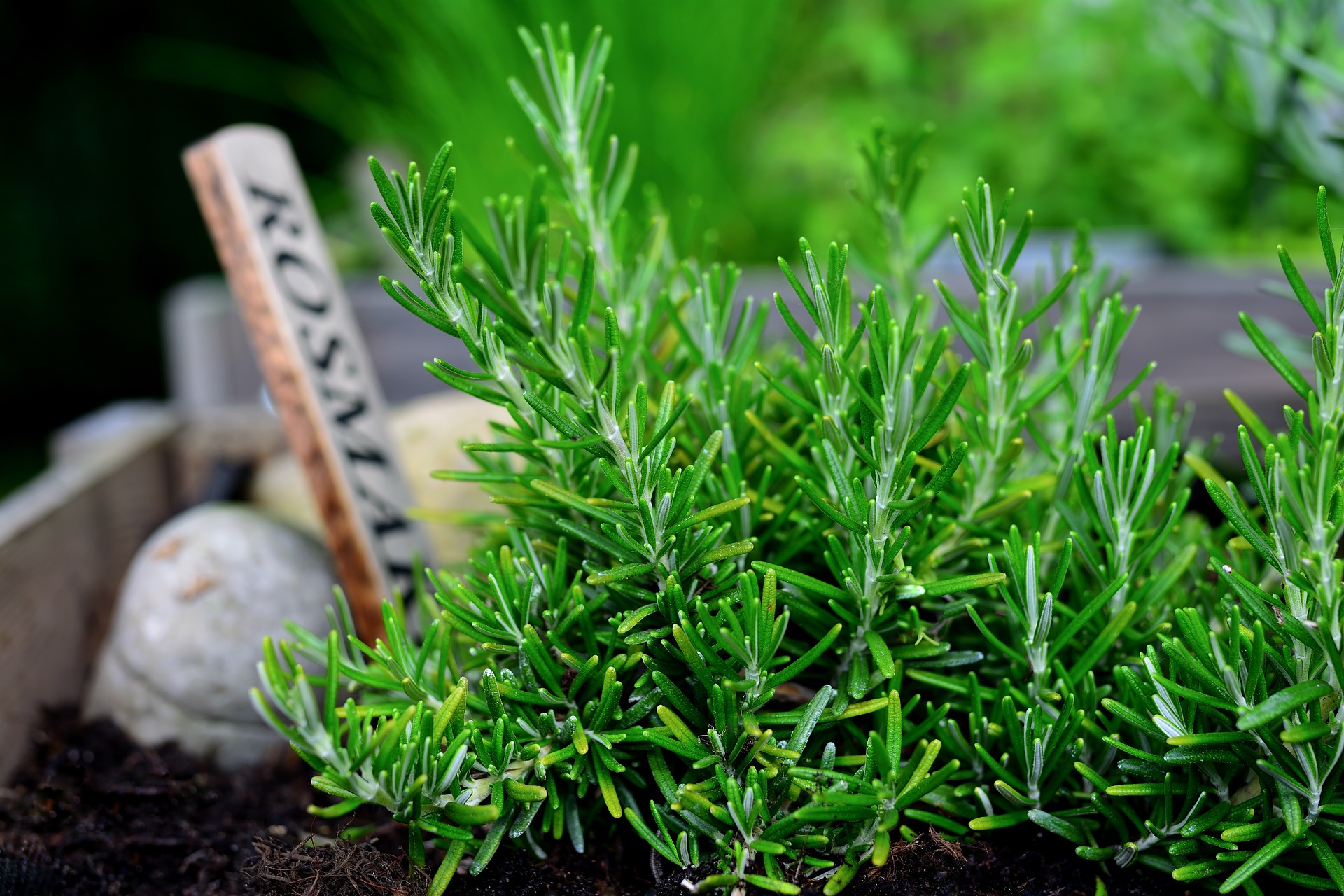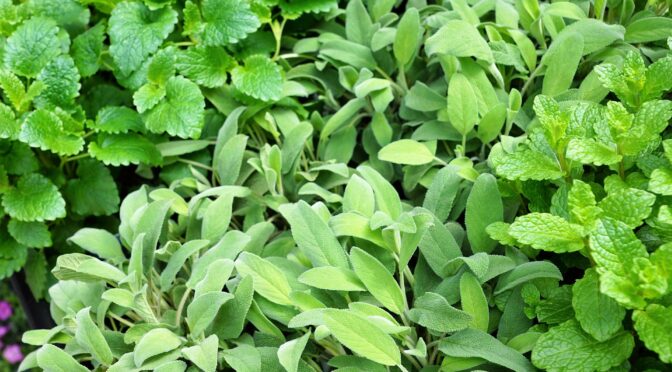Many of our favorite aromatic herbs are perennials that are perfect candidates for overwintering in gardens of the Southeast. Herbs like lavender, sage, thyme, and mint all add incredible flavor to meals and beverages or value to your farmer’s market offerings. While some herbs are cold hardy, others need more help if we want to grow them year round. Learn more about how you can overwinter herbs.
What Herbs Can I Overwinter?
There are many excellent herbs you can overwinter in the Southeast, though some need more care than others. Here’s a list of all the herbs you can overwinter, divided into categories based on their cold tolerances. Keep in mind, conditions like soil moisture, wind exposure, and snow cover can affect a plant’s cold tolerance.
You’ll find hardiness USDA hardiness zones listed next to each herb, but further on, we’ll discuss ways to push those limits.
Extremely Cold Hardy Perennial Herbs
- Peppermint (Zones 3-11)
- Lemon Balm (Zones 3-9)
- Horehound (3-9)
- Chives (Zones 3-9)
- Horseradish (Zones 2-9)
- Leverage (Zones 3-9)
- Sorrel (Zones 3-9)
You can also grow some of these cold hardy herbs farther south if you maintain consistent watering and offer them shade from the afternoon sun in the summer months.
Moderately Cold Hardy Perennial Herbs
- Tarragon (Zones 4-9)
- Wild Bergamot (Zones 4-8)
- Winter Savory (Zones 4-8)
- Lavender (Zones 5-9, depending on cultivar)
- Thyme (Zones 5-9)
- Sage (Zones 4-10)
- Oregano (Zones 5-10)
- Fennel (Zones 4-9)
Delicate Perennial Herbs
- Rosemary (Zones 8-11)
- Ginger (Zones 9-12)
- Turmeric (Zones 8-11)
- Lemon Verbena (Zones 8-11)
- Basil (zones 10-11)
 Soil Conditions to Overwinter Herbs
Soil Conditions to Overwinter Herbs
Soil conditions can have a surprising effect on whether our herbs make it through the winter. Generally, herbs thrive in loose, well-drained, fertile soil with a pH between 6.0 and 7.5. Many of our favorite herbs, like sage, fennel, rosemary, and lavender, are native to the Mediterranean and other regions with warm sunny days and loose, well-draining soil.
Heavy clay soils abundant in much of the Southeast can be problematic for these perennials. Avoiding low, wet spots and amending your soil with plenty of compost, peat moss, or aged manure can improve your soil’s drainage and pH to give your herbs a better chance. Raised beds are also a good option for areas with poor drainage.
Mulch
No matter which herbs you choose, from cold hardy to delicate, mulch is one of the best ways to improve their chances of surviving the winter. Mulch acts as insulation over the soil. In the fall, it can help keep soil temperatures warmer long. As it helps to moderate soil temperatures, it reduces the effects of freeze and thaw cycles, preventing soil from heaving.
However, it’s important to know that mulch can also hold in excessive moisture. If you have wet periods but not extreme cold temperatures, go lighter on the mulch. As discussed above, soil quality and drainage are critical for the survival of many herbs, like lavender.
Use Row Cover to Overwinter Herbs
One of the easiest ways to offer any plants some extra winter protection is to set up floating row cover. Using wire or other hoops, suspend frost cloth or plastic above the tops of the plants, venting or removing on warm days. This method is not only affordable, but one of the best because you can add or remove it as needed throughout the season.
Overwinter Herbs in Greenhouses & Hoop Houses
If you’re among the gardeners lucky enough to have the space and resources for a greenhouse or hoop house, dedicating a spot for perennial herbs may help you overwinter cultivars that would not typically survive in your zone.
In cold climates or mountainous areas, combine your hoop house or greenhouse with low tunnels or frost blankets to give your herbs some extra protection on wintry nights.
 Disease Issues
Disease Issues
Fungal diseases like powdery mildew, downy mildew, and root or crown rot are the primary diseases issues we see herbs succumbing to over the winter. Prevention is key with these diseases. Whether you amend your soil, or create raised beds, good drainage is essential.
Airflow is also important when you overwinter herbs. Space herbs appropriately, and divide them as needed. When you’re growing in hoop houses or low tunnels, it’s important to vent them whenever it’s warm enough.
For some herbs, you may also find some mildew-resistant cultivars.
If you see signs of a fungal disease, remove affected foliage immediately. Improve circulation if possible, using vents and fans in hoop houses. You may treat your plants with a homemade or commercial fungicide, like baking soda or commercial fungicides. Keep in mind that commercial fungicide, like copper, can build up in the soil and become detrimental.
Spring Care for Overwintered Herbs
If you live in a cold climate, and mulched your herbs in heavily, pull some of the mulch back in the spring to allow more airflow. Many herbs are susceptible to high moisture, rot, and fungal issues.
No matter how well you care for your herbs, you will probably see some die back. In the spring, you can trim any dead tips or branches to make room for fresh growth.
Topdressing your beds with finished compost can give your plants a boost as they begin to grow. The compost will add fertility and improve soil structure.

